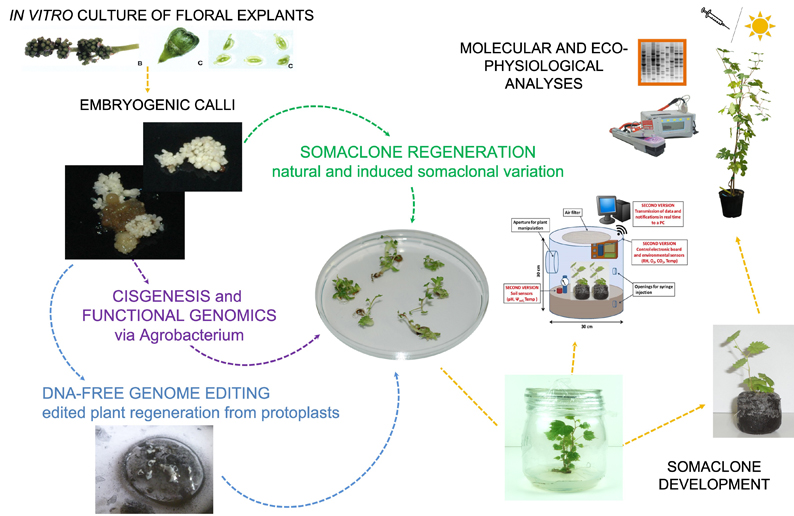
The platform relies on the in vitro culture of thousands of floral explants collected every year in the field from different Vitis vinifera L. cultivars and rootstock genotypes. The embryogenic callus is used for producing genetically transformed grapevines via Agrobacterium approach, cis-genic plants and it is processed for isolation of protoplasts, which are following subjected to transfection with CRISPR/Cas9 reagents and in vitro cultured to regenerate tDNA-free edited vines. The possibility to regenerate grapevines from somatic embryos (somaclones) has also the great advantage to allow the exploitation of potential somaclonal variability (SV), undoubtedly instrumental for genetic improvement purposes, for instance for the selection of stress-resistant genotypes. Explant regeneration protocols addressed to prime SV have been recently developed. The final objective is to orient the establishment of SV events that can facilitate the selection of plant lines displaying increased tolerance to drought stress and fungal diseases, such as downy and powdery mildews.
(Referente: Dr. I. Perrone)
